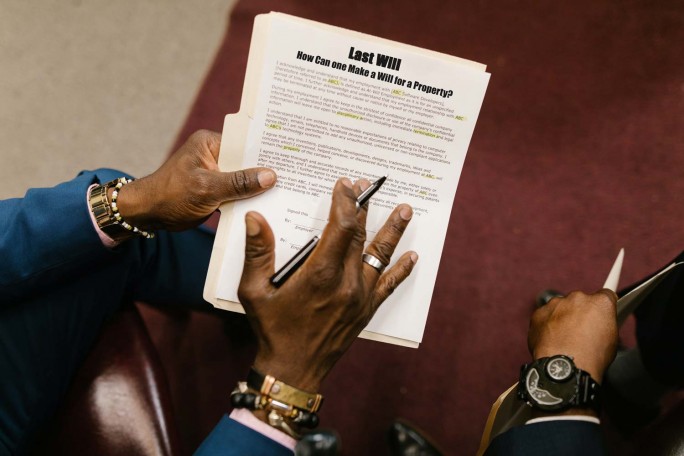Lastjourney Blog
Will Planning In India: Everything You Need to Know

 Table of Contents
Table of Contents Reading Time: 5 minutes
Everyone amasses the things which provide physical leisure. Besides being a source of leisure many are a necessity of life. These could be vehicles, furniture, jewelry, houses and other properties. After enjoying the pleasure of these things we wish to bestow them to our descendants for making their life a little hurdle free.

But there is not a casual way to give them out, one has to follow a legislative procedure through which we can make our choice that how can be our belongings distributed. It is known as Will. This is a legally documented format in which a person describes what are his or her assets and to whom they should be given after the death of that person.
In the Indian constitution, the concept of will is mentioned in The Indian succession act 1925. According to this act, a person who is not minor or has not a disturbed mind can make a will. The person who writes a will is called a testator. Writing a will and understanding both are complex processes as the testator will not be present there to explain the equitable distribution of belongings.
Major Elements of Proceedings

To understand the procedure of making a will one has to be aware of the major elements related to the making of a will.
Declaration
It is the very initial part of a will in which the person assures that he or she is in a state of full cautiousness and agrees to render the belongings.
Make a Catalog of Your Assets or Belongings
While writing the will one has to be very clear about the things which are to be distributed among the descendants. In this list, the things should be included with their present market values like the amount in savings or fixed account, policies, mutual funds and properties etc. The belongings which can be placed on this list can be,
- Movable properties like cash, stocks and other things whose value changes till the demise of the testator.
- A bucket consisting of jewelry and a family heirloom. These belongings pose a gain value in anyone’s family.
- Immovable properties like apartments, factories, plots, bungalows and vacant land etc. The value of such belongings changes gradually in comparison to movable properties.
Involvement of Witness
When it comes to a matter which is directly linked with a financial value, trust is hard to get. For that, you need to sign the will in the presence of at least two witnesses. They do not need to read your will but they must assure that you have written thin their presence by signing the will at a specific place with their full names and address.
New Ways of Making Will in India
Dates back people followed the traditional way of making a will. It was made in a handwritten or typed form but today in India, there are a lot of private organizations which help you create your will. Willjini, legaldesk, ezzewill, Indianwillmaker etc are some of them. Esahayak is one of the most preferred and recommended ones. The cost of making a will depends on its format.
How Can one Make a Will for a Property?
The formation of will ensures that one’s property devolves according to the wish of the testator and further it will be divided among deserving heirs in fair shares. The property can be devolved in two ways-
- According to the testator’s will which is known as testamentary.
- According to the legislative directives if there is no will present at the time of distribution.
Can a Testator Change the Will?
A will completely rely on the testator’s will. It could be a complex wordplay to get akin to the complex will making and executing the procedure. But changing the enforceable will is not so complex. If someone forces the testator to include the belongings and name of the heir despite the denial, the will should be considered void. Nothing coercive or influencing can work in the formation of will.
Is there a Certain Time for Making a Will?
Normally people write their will when he or she feels that the expedition of life has come to an end. But there is no certain time for making a will. One can write a will many times but the will which is written right before the demise of a person will be considered applicable and worth executing in legal proceedings.
Is the Registration of Will Mandatory?

No, it is not mandatory to register the will but if the testator and heirs want to register it then they can register it to the sub-registrar. Not only the registration but even a withdrawal process is also a picky option. After registration and submission, one should shrug off the worries related to the security of the will as it is kept in safe custody. After the demise of the testator, the heir can take a step to apply for the probate process.
Bringing some Changes in a Will by the Testator is Allowed?
The procedure of bringing a few changes in the will is widely known as the making of codicil to the will. There is nothing new and specific in making changes or codicil to the will. It is akin to the execution process of making a will. But it must be kept in mind that making the codicil to the will is an irrevocable process and can not be altered once it has been done. The change-making act in a will can be done at any time So there is no time foundation.
The codicil to the will process can bring some concerns to the heirs. For that, a citation will be served through which one can express the concern. The entire process takes place inside the court premises.
Can an Ancestral Property be Included in a Will?
Before knowing the inclusion of ancestral property in a will one must know, what the ancestral property is? Ancestral property is developed upon the heirs by at least three generations or above them. The basic principle attested with perception is that the property should be four or more generations old, then it will be counted as an ancestral one. It can be included in the will and dispersed among heirs.
Is Making the Will Legal in India?
The making process of a will is entirely legal in India and the legal age for making it is twenty-one years old. It is not written anywhere in the constitution that it will be written on a stamp paper. One can write it own handwriting or create it through the online alternatives.
Some Important Points to Remember While Making a Will
- Make a wise choice while opting for the witnesses of your will. The best one could be a doctor and another is a lawyer. The doctor will never raise any question or doubt regarding your health and conscious state and the lawyer will assure that you did not make any glitch while making the will.
- A white thick paper should be opted for writing a will. Securing a will for a long time is the most crucial point while writing it. Make sure it will not be torn or spoiled over time.
Your email address will not be published. Required fields are marked *












